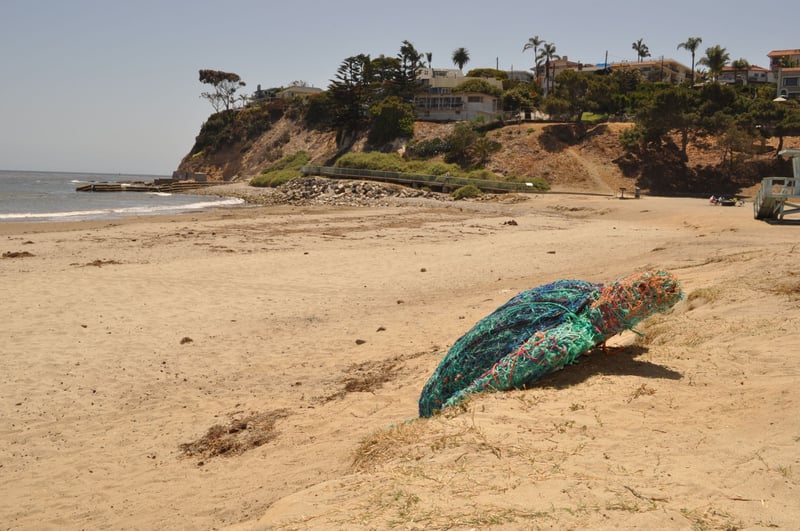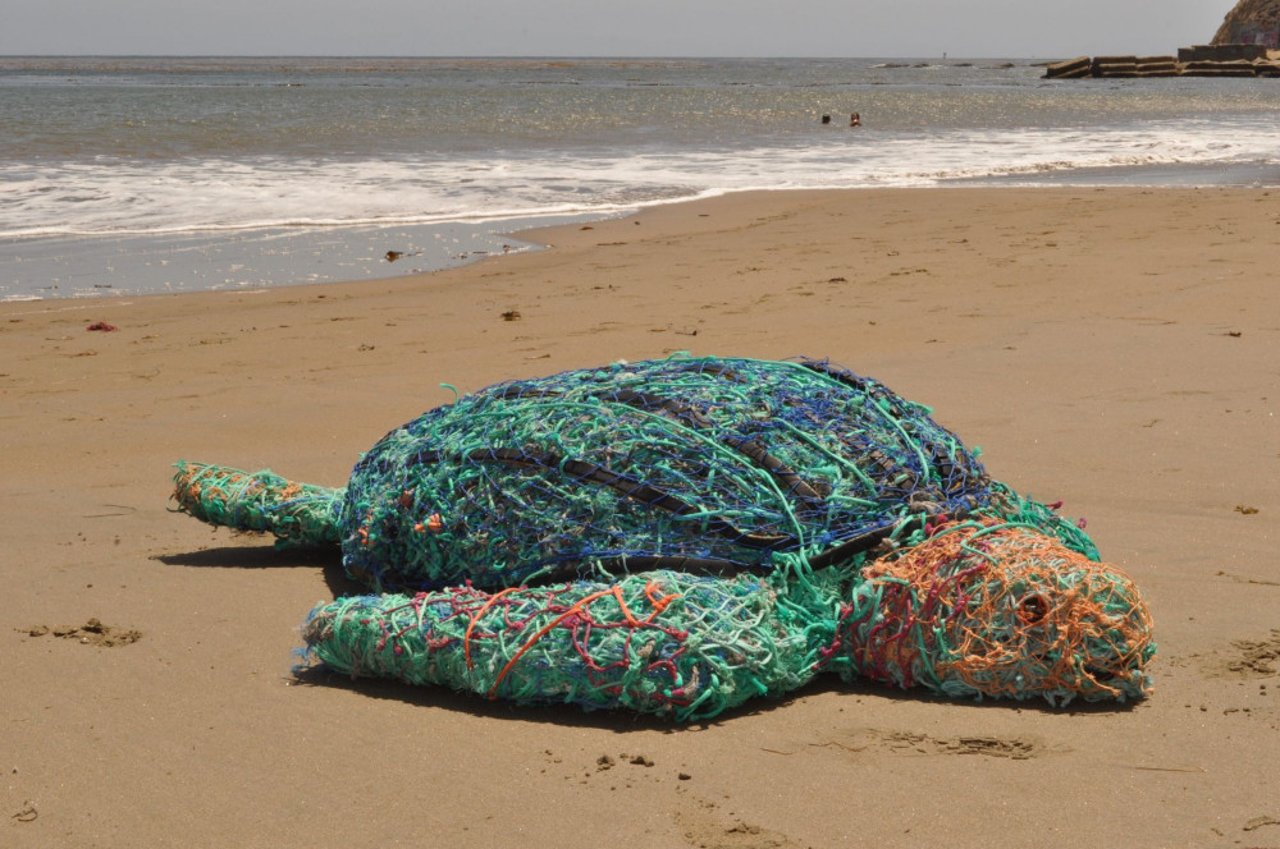
Fiona the turtle: the plastic leatherback revealing the true cost of ocean pollution
News
Fiona has been travelling all over the world on a mission to raise awareness of the deadly issue of ghost gear, which is ruining the lives of thousands of marine animals
Leatherback turtles are truly remarkable.
The largest of all the turtles, and the fastest of all the reptiles, these ocean giants can weigh up to 700kg. They’re also extremely well-travelled.
Western Pacific leatherbacks undertake one of the greatest migrations of any air-breathing marine animal. This epic journey across the Pacific takes 10-12 months, and takes them through the territories of many different countries. Unfortunately, this migration is becoming increasingly fraught with danger, with deadly consequences.
The leatherback crisis
The Western Pacific population of leatherbacks has decreased 80% in just the last three generations, and is now listed as critically endangered. As well as threats on the beaches they use as breeding grounds, a huge hazard to these gentle creatures comes from plastic and ghost fishing gear.
Their migratory route takes them through some of the most intensively fished waters on Earth, as well as the North Pacific garbage patch – the largest accumulation of ocean plastic debris.
Many leatherbacks die from mistaking plastic for their natural prey, jellyfish. Many also find themselves entangled, and suffocate.
Meet Fiona
Fiona is not your usual leatherback turtle. She’s been made entirely from salvaged ghost gear – lost, discarded or otherwise abandoned fishing equipment – by artist Katrina Slack from Cornwall, UK.
To collect the material for Fiona, and other ghost gear sculptures, we teamed up with Surfers Against Sewage. Over one weekend in 2015, 3,000 volunteers removed 150 kilometres of ghost gear from 123 beaches.
Fiona the leatherback turtle made from recycled ghost gear
Fiona's migration
The material used to make Fiona was collected in England, but its origins, much like the ghost gear issue and leatherback turtles themselves, is truly international.
Since her creation, Fiona has been on a mission to spread the word about ghost gear, and its devastating toll on leatherback turtles and other marine life.
So far, her migration has taken her from the World Animal Protection offices in London, all the way to Thai Union’s offices in California, with stops at London’s Natural History Museum, local events and a DEFRA meeting with heads of commonwealth nations, along the way.
The Western Pacific population of leatherbacks has decreased 80% in just the last three generations and is now listed as critically endangered.
